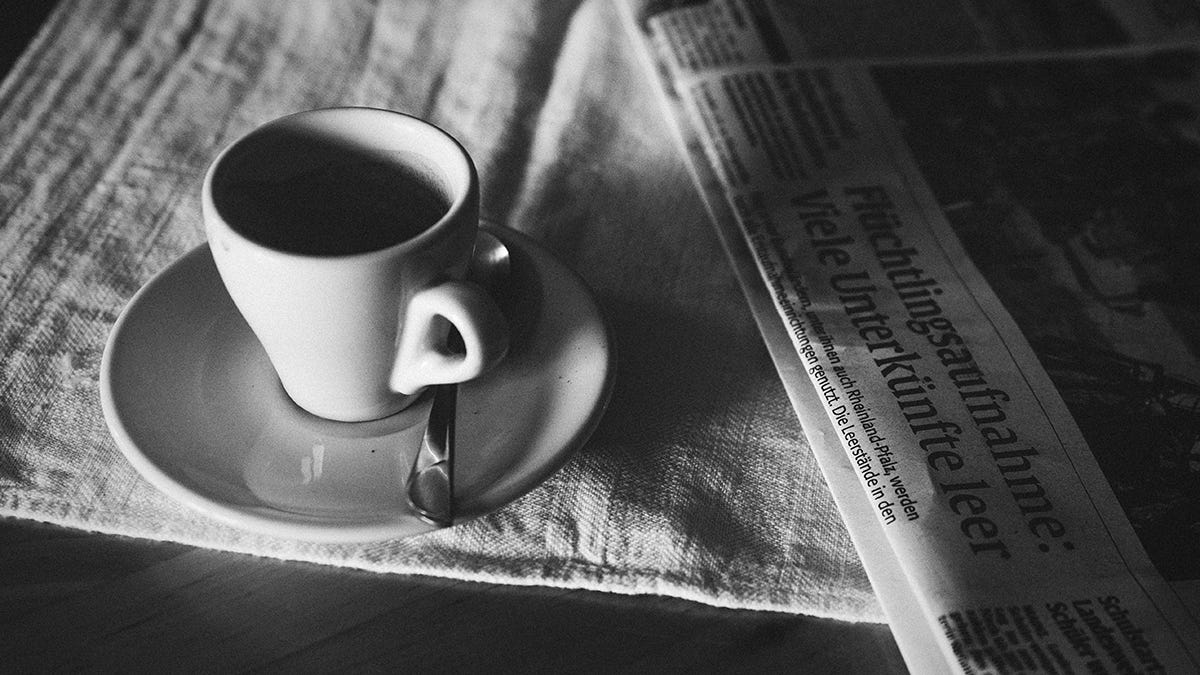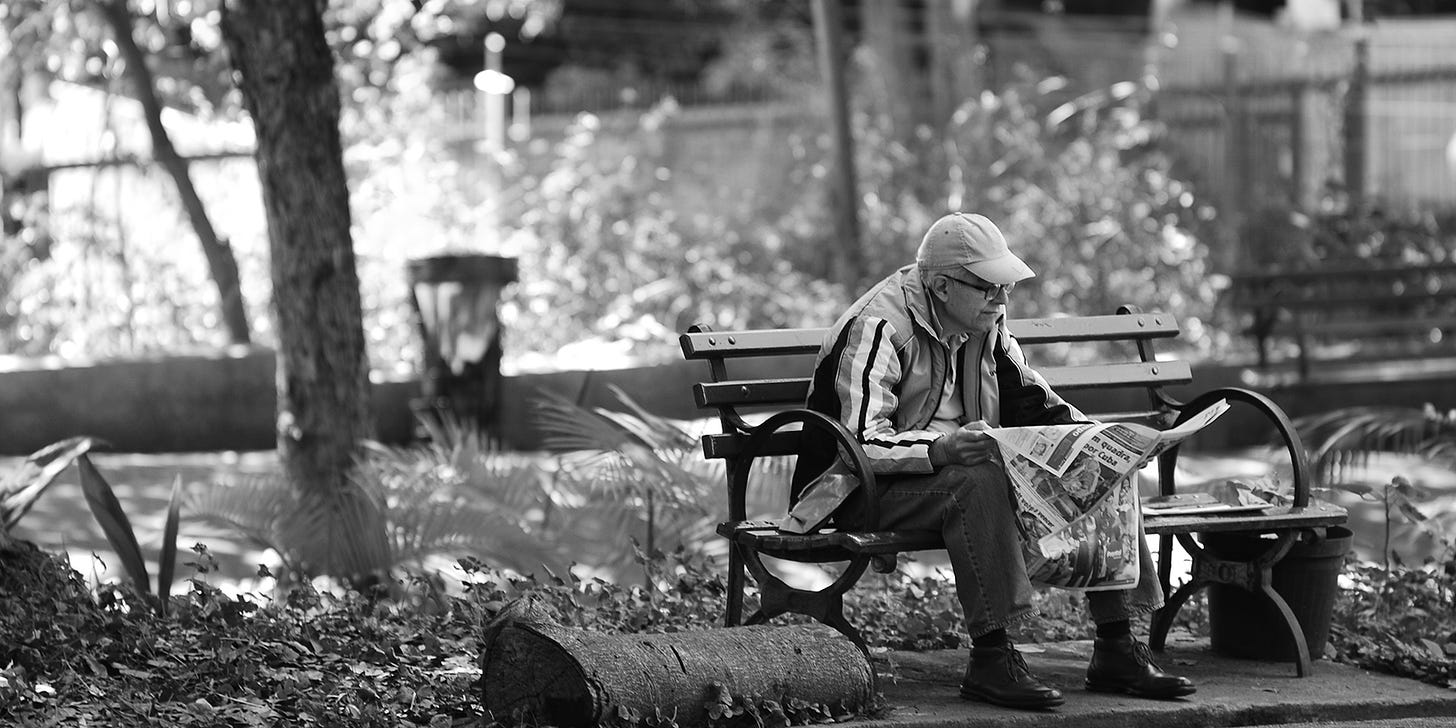Coffee News Roundup: Week Ending June 24th
This week, World of Coffee takes place in Milan, coffee companies write to B Corp calling for stricter standards in the wake of Nespresso's certification, & coffee might make you shop more impulsively
It’s another weekend, and thus time for another look at the past week’s coffee news.
Let’s dive in.
2022 World Of Coffee Milan: The Sprudge Primer - via Sprudge
This year’s World of Coffee is taking place this week, moved as it was from Warsaw to Milan after the Russian invasion of next-door Ukraine. In fact, it could very well be taking place as I write this sentence, and depending on when you read it might already have taken place.
This leaves the Roundup with a bit of a conundrum: how to write about something that hasn’t happened, is happening right now, and hasn’t happened yet all at once.
What is/was/will be the outcome of the various World Championships that are due to be decided, the denouement of the Coffee in Good Spirits, Cup Tasters, Roasting, Latte Art, and Cezve/Ibrik competitions?
What of the SCA lectures, with titles such as Evolution in Coffee Education, Women in Coffee: Improving occupational safety and health, Exploring the Flavor of Ethiopian Coffee: Past and Future, and more?
Then there are the public cuppings, making a return after a COVID-compelled hiatus? Actually this one is weird—why are we slurping and tasting and sharing very close quarters with strangers during a worldwide pandemic? This was going to go at the end under the What To Read section, but RJ Joseph has written a pair of excellent articles for Fresh Cup covering COVID safety at coffee events more generally and a case study of what happened at Expo in April, and they’re both well worth a read.
Also, very few masks showing up in photos so far.
Anyway, Sprudge has written a good intro to everything that is going on/coming up/went on in Milan, so check it out and we’ll do a better roundup next week.
Coffee Companies Call For Stricter B Corp Standards Following Nespresso Certification - via Daily Coffee News
Nespresso is a B Corp. Just writing that feels odd, as B Corp was, until recently, considered up there with the very pinnacle of ethical business certifications.
Now it just feels tainted, and it seems I’m not the only one who thinks so.
A coalition of fellow B Corp coffee companies have added their names to an open letter led by the nonprofit Fair World Project, which calls for stricter B Corp standards in the wake of the many documented human rights violations found in Nespresso’s supply chain over the past few years, violations ranging from wage theft to child labour.
It’s a good letter, and worth reading in full, and it’s signed by a string of B Corp-certified and ethical-leaning coffee companies including Peace Coffee, Cooperative Coffees, Dean’s Beans, and many more.
As the letter states:
“Although Nespresso has achieved the minimum currently required for certification, scoring 84 out of 200 points, Nespresso’s abysmal track record on human rights from child labor and wage theft to abuse of factory workers is well documented by the media and NGOs. Indeed, Nespresso’s extractive business model is publicly known to be fundamentally at odds with the ethical and just future B Corps want to build and should have structurally been a barrier to Nespresso’s B Corp Certification.”
Nespresso’s B Corp status is already plastered all over its website, as well as showing up in sponsored content articles and presumably on the coffee itself (although I haven’t looked to confirm).
“B Lab has said it is up to the ‘influential community’ of consumers and companies like ours to hold other companies accountable,” the letter continues. “However, we could not prevent Nespresso from certifying, and we cannot take away Nespresso’s B Corp Certification if they fail to improve—only B Lab can do that, and only if the certification requirements and process change.”
More Headlines
South Korea Attempts to Tackle Plastic Waste, One Coffee at a Time
Starbucks Malaysia Operator to Sacrifice Margin Than Raise Price
Giesen Unveils W6 Pro; Plans Launch of 15-Kilo Electric Model
Cometeer Brings James Hoffmann's Square Mile Coffee to the U.S.
New Study Finds Fairtrade Certification Enhances Farmer Resilience
The Week In Coffee Unionizing
Time to break out the bullet points.
Workers at 1319 Coffeehouse in Cambridge, Massachusetts, voted to form a union affiliated with the New England Joint Board Unite Here. The vote came after the company’s owner declined to voluntarily recognize the union, plans for which were announced back in April.
A former employee of Nashville’s Barista Parlor who said she was fired for talking to colleagues about unionizing led protests of the company, as well as filing an unfair practices claim with the National Labor Relations Board. Barista Parlor rejects the claims, saying the worker was insubordinate. This comes as the company looks to expand nationally with a huge new roasting space and partnership with a real estate development firm.
Boss Barista has a good summary of the significance of Colectivo Coffee’s recent unionization, and what it means for the wider specialty coffee industry as well as the service industry more generally. As always, it’s well worth your time.
The Starbucks organizing wave continued to roll across the country, with the total number of successful votes at 165 according to More Perfect Union. Interestingly, this week saw a store at Disneyland in California vote in favour of joining a union, coming a week after a location just outside the park also won their vote.
Meanwhile, the NLRB is asking a district court to immediately reinstate seven Starbucks workers allegedly fired for involvement in organizing. If approved, the ruling would allow the employees to return to work pending the outcome of their hearing scheduled for July. The request also asks the court to stop “what it says is extensive illegal activity by the coffee chain”, including intimidation and threats towards workers—a claim the company denies.
The Week In Corporate Coffeewashing
As Starbucks in the US grapples with the bad press predictably inspired by its unceasing union busting, internationally the company is receiving some glowing mentions. This week both Tasting Table and Manilla Standard published articles that raved about Starbucks’ sustainable and ethical practices around the world.
Tasting Table’s piece focused on a specific location in Taiwan which it called “environmentally unique” and, in its opening line, gushed that “Starbucks is well known for having socially responsible goals and practices ranging from waste reduction to ethical sourcing, hunger relief, sustainability, civic engagement, job creation, and a host of other local initiatives.”
No mention of the unionization drive anywhere in the article.
Manilla Standard, meanwhile, focuses unsurprisingly on Starbucks Philippines, which “deserves a spotlight for championing sustainability and digital innovation as we all continuously move towards a more connected future.”
Also no mention of the whole union thing. Or the fact that Starbucks was included in the recent exposés on child labour and wage theft in the coffee supply chain.
Is Coffee Good For You?
Well it could make you shop more, and for less useful stuff. Is that good? Probably not.
Researchers at the University of South Florida gave over 300 shoppers an empty cup and the option of filling with caffeinated coffee, decaf, or water, about half of whom chose the caffeinated stuff. The shoppers then went shopping before sharing their receipts with the researchers at the end.
The caffeinated shoppers spent 50% more and bought 30% more items than their non-jittery counterparts, leading the scientists to conclude that “caffeine intake leads to shopping impulsivity in terms of higher number of items purchased and greater spending,” according to lead author Dipayan Biswas.
The caffeinated customers also bought more impulse items, “such as scented candles and fragrances.”
“While moderate amounts of caffeine intake can have positive health benefits, there can be unintended consequences of being caffeinated while shopping,” Biswas continued. “That is, consumers trying to control impulsive spending should avoid consuming caffeinated beverages before shopping.”
What To Read
Starbucks Is Breaking Ground as One of the Worst Union Busters in Recent Memory by John Logan
Orange Wine is a Bad Tasting Note by Ashley Rodriguez
Why a Rhodes Scholar’s Ambition Led Her to a Job at Starbucks by Noam Schieber
Until next week, drink good coffee.






